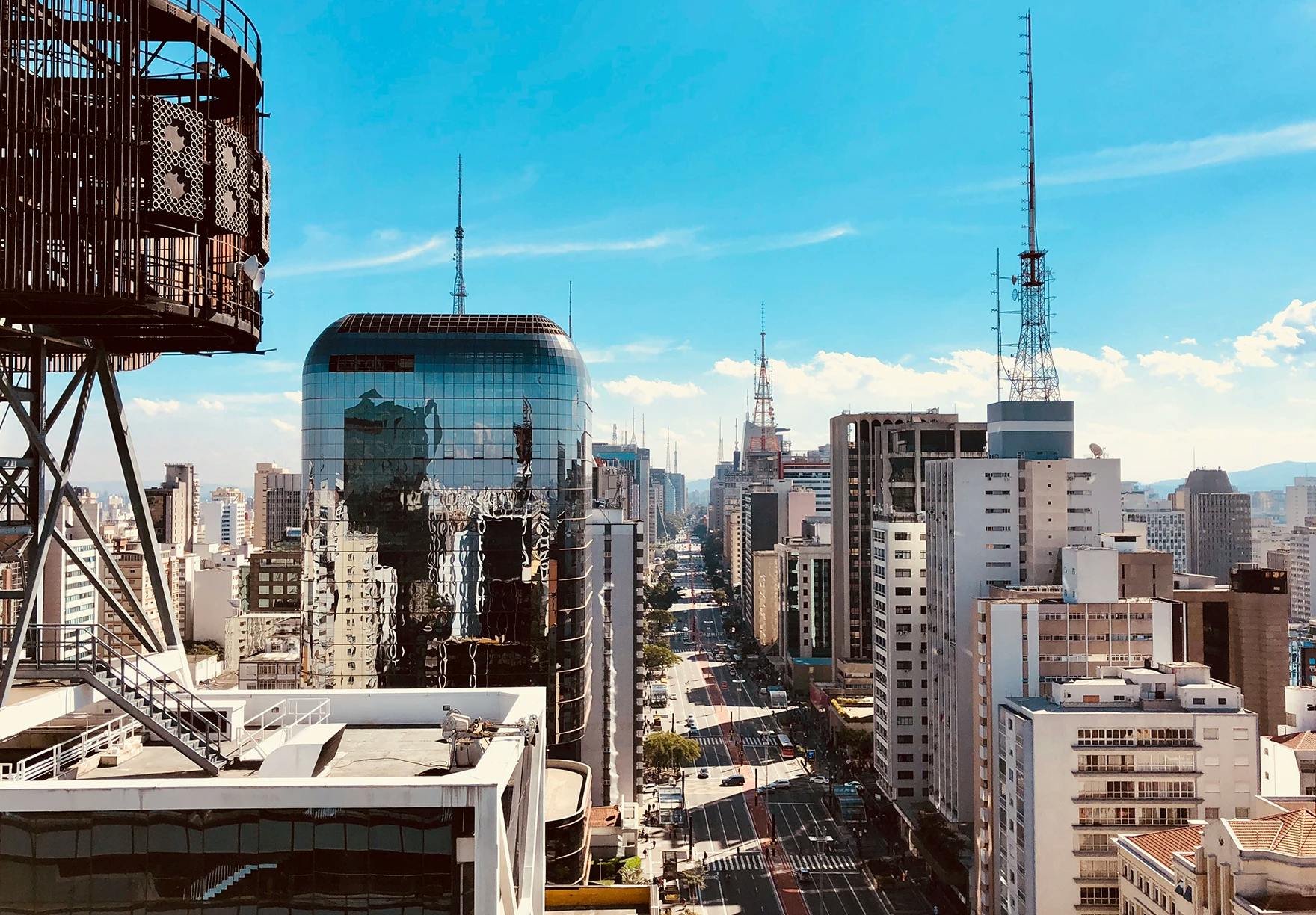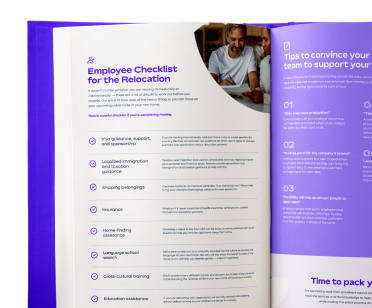
Denmark — 9 min

Visas and Work Permits — 10 min
To relocate or hire an employee in Brazil, you must make sure they have the right documents to live and work there legally, including the proper work visa and permit.
If it’s your first time hiring in Brazil, it can be challenging to understand the country’s complex employment laws and tax practices. Failing to comply with immigration laws can land your company in trouble. You may have to pay fines or penalties. Employees could even face deportation and criminal charges.
That's why many companies choose to work with an employer of record (EOR), that can take on the legal responsibilities of hiring and paying employees. An EOR like Remote can help you handle the tasks involved in international hiring such as onboarding, payroll, compliance, and benefits.
This article will explain work permits and visa processes in Brazil. We'll also explain how Remote can make compliance easy when hiring in Brazil and other countries.
Employees who are relocating, traveling digital nomads, or non-citizen new hires will all require the correct visa and work permits to live and work legally in Brazil.
To ensure you comply with local laws and regulations, you must lodge a work authorization check for workers before they begin working for your company in Brazil. A work authorization check ensures the individual is legally allowed to work in the country and highlights any additional requirements that must be met. It also helps to avoid any penalties from the government for non-compliance.
In most countries, an employee cannot work for a foreign company on a tourist visa. With the rise of remote work, governments are enforcing stringent rules that restrict digital nomads and remote workers working under tourist visas.
Brazilian citizens will not require a right-to-work check. These types of employees are protected under local laws from having to go through the same immigration and legal process required of foreign nationals.
If you are looking to employ a non-citizen of Brazil you will need to perform a work authorization check. The check will lower your business liability and risk from non-compliance. You'll also avoid the lengthy and costly process of transitioning the employee to Brazil only to find out they won't be able to work in the country.
The following types of non-citizens will require your business to conduct a right-to-work check:
Temporary residents
Permanent residents
Work permit holders
Your company will be responsible for communicating directly with the Brazilian government to confirm the validity of the employee's visa and passport status. You will then need to confirm the validity of the visa and Brazil work permit acquired and compare them with Brazilian labor, tax, and immigration laws.
Learn how to simplify your planned relocation with this walkthrough guide. We outline the key steps for you and your employer to enable a compliant, efficient, and hassle-free move.

All non-citizens, regardless of whether they are new hire in Brazil or relocating to the country, will require a work visa to work in Brazil.
On top of the Brazil work visa, non-citizen employees will also need to get a residence permit to allow them to stay in the country.
If an individual already has a tourist visa, they have to leave the country and then apply for a work visa from the country they live in. Employees cannot apply for the work visa and permit on their own; they must enlist the help of their employer to complete the process.
For workers to have the legal right to work in Brazil, they must have a valid work permit.
A Brazil work permit is an essential document that allows a worker to gain employment status while in Brazil. But, before they can apply for a work visa, they'll need to obtain a residence permit.
The work visa allows your worker to extend their stay in the country for the specific purpose of work. The specific requirements for employees in Brazil will depend entirely on the type of visa you acquire. Since most workers will apply for the VITEM V visa (more details are below), this section will focus on the requirements for that visa.
The eligibility requirements for the VITEM V work visa in Brazil are:
At least two years of relevant professional experience in the field and at least nine years of education; OR
A relevant university degree with one year of professional experience; OR
No relevant experience but has a relevant post-graduate degree.
Since a residency permit is required before obtaining a work visa, it's necessary to know the documents and steps that must be submitted for the permit. Here is a list of the necessary documents:
Completed application form
Bank statements
Proof of qualifications
Police clearance with criminal background check performed
Medical and physical examinations administered by licensed professional
There are many different types of visas available in the country.
However, only three major visas apply to employees seeking work in Brazil: Permanent work visa, VITEM V visa, and VITEM II Visa.
Also required but separate from the visa process is the Residency permit. The employee will need to obtain both if they plan on working in the country. Brazil is more likely to grant temporary visas and permits as opposed to providing long-term stays in the country.
The permanent work visa has been traditionally used for foreign workers who are entitled to permanent residence. Professionals in fields that foster education and innovation are usually accepted, along with investors with $50,000 or more invested as an individual or a company with at least $200,000 invested.
An alternative path to permanent work visa is available for VITEM V visa holders. After two years, they become eligible to apply for a permanent work visa without needing to invest any capital.
The VITEM V visa is the most commonly awarded working visa because it applies to most foreign workers in Brazil. It is known as a temporary work visa and is valid for up two years; there is an option to request another two-year extension.
Employees who decide they'd rather operate from Brazil on a longer-term basis have the option to transition into a permanent work visa after the initial two years have ended. This visa would give the applicant permanent residency in Brazil and would set them on a path toward citizenship.
The first step to getting a work visa in Brazil is to apply for a Residency permit. Once received, the employee can start the process for the work visa.
Below are the Brazil work visa requirements:
Valid passport with six months validity, and it must also have two blank pages available
Receipt for a Brazil visa application fee
Return flight or a round-trip ticket
Passport-sized picture
Proof of employment, such as a letter from the employer with name, salary, position, and duration of employment
Proof of financial means for the duration of stay, such as bank statements for the past three months.
The employee must apply to the Brazilian embassy or consulate in their home country supported by the employer.
Relocating an employee to Brazil for work can be a complex and time-consuming process. As the employer, you will need to act as a sponsor for the employee to help them obtain the necessary documents.
The first step is to create an employment agreement or contract with the employee, which specifies relevant information about the job, such as salary amount, working hours, and duration of employment. This contract will be used when the employee is applying for a work visa as proof of employment for the Brazilian government.
As a sponsor, you will need to help them gather all necessary documents, such as passport photos, a valid passport, proof of employment, and proof of financial means. The visa is the last step for the employee to reach compliant status, so your involvement is key for a successful outcome.
Brazil’s digital nomad visa can be used by people who want to work remotely while living in Brazil.
While it’s considered a residence permit, the visa is not a substitute for living in Brazil long-term. Digital nomads will only have up to a year to stay and work in the country, although they can extend the visa for an additional year.
Here’s a list of the necessary documents needed to apply for the digital nomad visa:
Valid passport
Recent photo
Completed digital nomad application form
Criminal record history
Proof of employment
Health insurance coverage
Bank statements.

Hiring in Brazil can be challenging even for well-established businesses. Apart from making sure the employee has relevant legal documents to work and live in Brazil, the employer must also ensure compliance with local rules and regulations.
Remember, to hire or relocate an employee in Brazil, you must also establish your own local entity in the country, which is a complex and tedious process, on its own.
Your best is to partner with Remote. Our EOR services can help you minimize the risk, hassle, and costs associated with expanding your team in Brazil. Remote’s team of employment experts can handle onboarding, payroll, employee benefits, and taxes in Brazil, making international hiring fast and simple.
Download Remote's Relocation guide for useful tips and insights on the process of employee relocation. You can also contact our mobility experts if you have any questions about global hiring or moving employees abroad.
Create an account with G2’s top-ranked multi-country payroll software and start onboarding your first employees in minutes.


Subscribe to receive the latest
Remote blog posts and updates in your inbox.